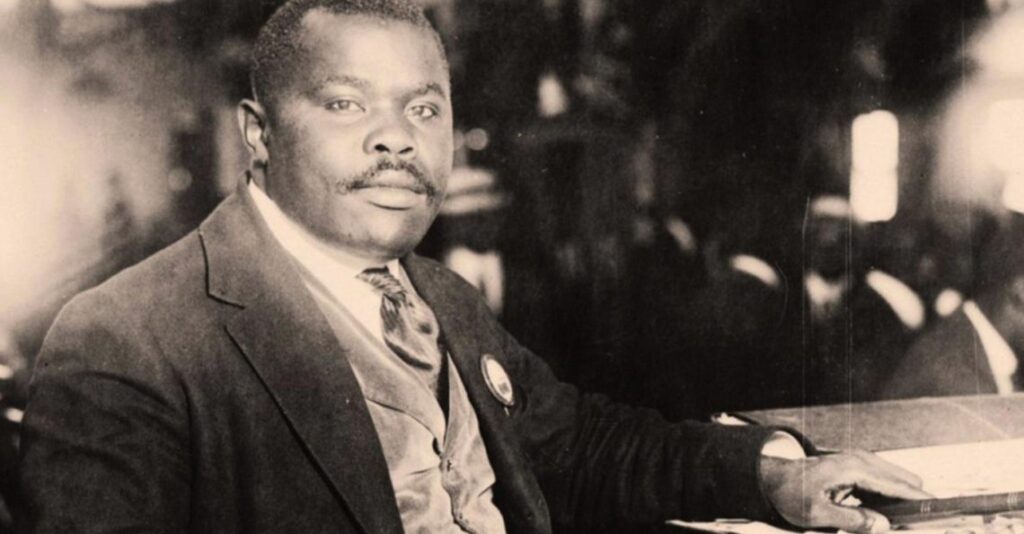By Stacy M. Brown
NNPA Senior National
Correspondent
Congresswoman Yvette Clarke (D-NY) and 20 of her colleagues are urging President Joe Biden to exonerate Marcus Mosiah Garvey, the Pan-Africanist leader whose 1923 conviction for mail fraud has long been viewed as politically motivated. In a letter to the president, the lawmakers described the case as rooted in prosecutorial misconduct designed to discredit Garvey and undermine his work for racial justice and empowerment.
“Exactly 101 years ago, Mr. Garvey was convicted of mail fraud in a case that was marred by prosecutorial and governmental misconduct,” the letter stated. “The charges against Mr. Garvey were not only fabricated but also targeted to criminalize, discredit, and silence him as a civil rights leader.”
Born in St. Ann’s Bay, Jamaica, in 1887, Garvey was the youngest of 11 children. His father, Marcus Garvey Sr., a stonemason, steered him to achieve. Garvey described his father as “severe, firm, determined, bold, and strong,” qualities that shaped his own steadfastness. His father’s extensive library sparked Garvey’s love for reading and ideas.
At 14, Garvey became a printer’s apprentice and later moved to Kingston, where his involvement in union activities and participation in a 1907 printer’s strike ignited his passion for activism. He traveled through Central America as a newspaper editor, highlighting the exploitation of migrant workers, and studied at Birkbeck College in London, where he worked for the African Times and Orient Review, advocating for Pan-African nationalism.

In 1912, Garvey returned to Jamaica and founded the Universal Negro Improvement Association (UNIA) to unite the African diaspora to “establish a country and absolute government of their own.” His correspondence with Booker T. Washington brought him to the United States in 1916. Garvey settled in Harlem, establishing a UNIA chapter and promoting economic independence for Black communities.
Garvey launched the Negro World newspaper in 1918, which reached hundreds of thousands of readers globally, and the Black Star Line in 1919, a shipping company intended to foster trade among Africans in the Americas, Caribbean, and Africa. The Negros Factories Association, another Garvey initiative, aimed to create manufacturing hubs across the Western Hemisphere and Africa.
Garvey’s work peaked in August 1920 when the UNIA claimed 4 million members and held its first International Convention at Madison Square Garden, where Garvey addressed a crowd of 25,000, urging pride in African history and culture. However, his separatist philosophy faced criticism from established Black leaders like W.E.B. Du Bois, who called Garvey “the most dangerous enemy of the Negro race in America.” Garvey dismissed Du Bois as a tool of the white elite.
Despite his achievements, Garvey’s growing influence made him a target of federal authorities. His 1923 mail fraud conviction centered on selling Black Star Line shares. Historians and advocates have long argued that the charges were baseless and designed to dismantle his movement. President Calvin Coolidge commuted Garvey’s sentence in 1927, and he was deported to Jamaica.
Garvey continued his advocacy until his death in London in 1940. His remains were returned to Jamaica in 1964, where he was proclaimed the country’s first national hero. His legacy is honored through symbols like Ghana’s Black Star Line and national soccer team, named in tribute to Garvey’s vision of African unity and empowerment.
Efforts to clear Garvey’s name have persisted for decades, with hearings led by Congressman John Conyers in 1987 and resolutions introduced by Congressman Charles Rangel in 2004. Congresswoman Clarke has now taken up the mantle.
“A pardon for Mr. Garvey would honor his contributions to Black history, remove the shadow of an unjust conviction, and reaffirm this administration’s commitment to advancing racial justice,” the letter stated.
Garvey’s influence on the civil rights movement and his advocacy for economic independence continue to inspire newer generations. His speeches, writings, and initiatives laid a foundation for Black empowerment and unity worldwide. In Washington, D.C., Garvey’s legacy is commemorated with a bust in the Organization of American States’ Hall of Heroes, a testament to his impact on the fight for racial justice.
The lawmakers’ letter also addressed the broader implications of exonerating Garvey, particularly as debates over the teaching and preservation of Black history intensify. They argued that correcting this historical injustice would reinforce the importance of preserving the truth about leaders like Garvey.
“Clearing Mr. Garvey’s name would set the record straight and restore his legacy as an American hero,” the lawmakers wrote.
Garvey’s advocates see his exoneration as not only a long-overdue correction of a historical wrong but also as a reaffirmation of the contributions of Black leaders to global progress. Clarke, alongside colleagues such as Congresswoman Barbara Lee (D-CA), Congressman Gregory Meeks (D-NY), and Congresswoman Nikema Williams (D-GA), has called on President Biden to act.
“This is about justice, not just for Marcus Garvey, but for all those who believe in the power of truth and reconciliation,” Clarke stated.
“A pardon for Marcus Garvey would not only honor his life’s work but also correct a stain on history,” the lawmakers wrote further. “This is a moment to ensure his name is remembered for his accomplishments, not for an unjust conviction.”




